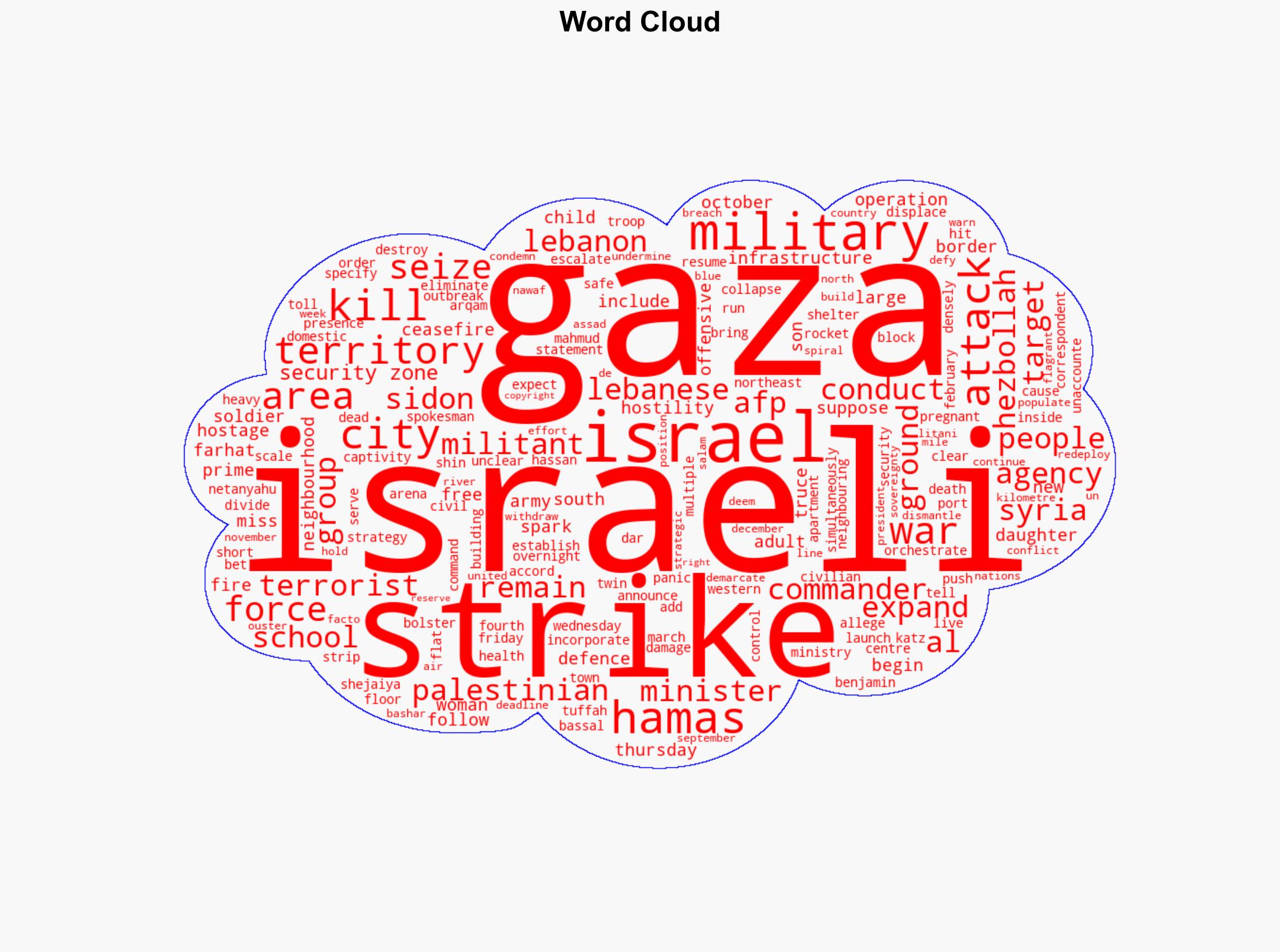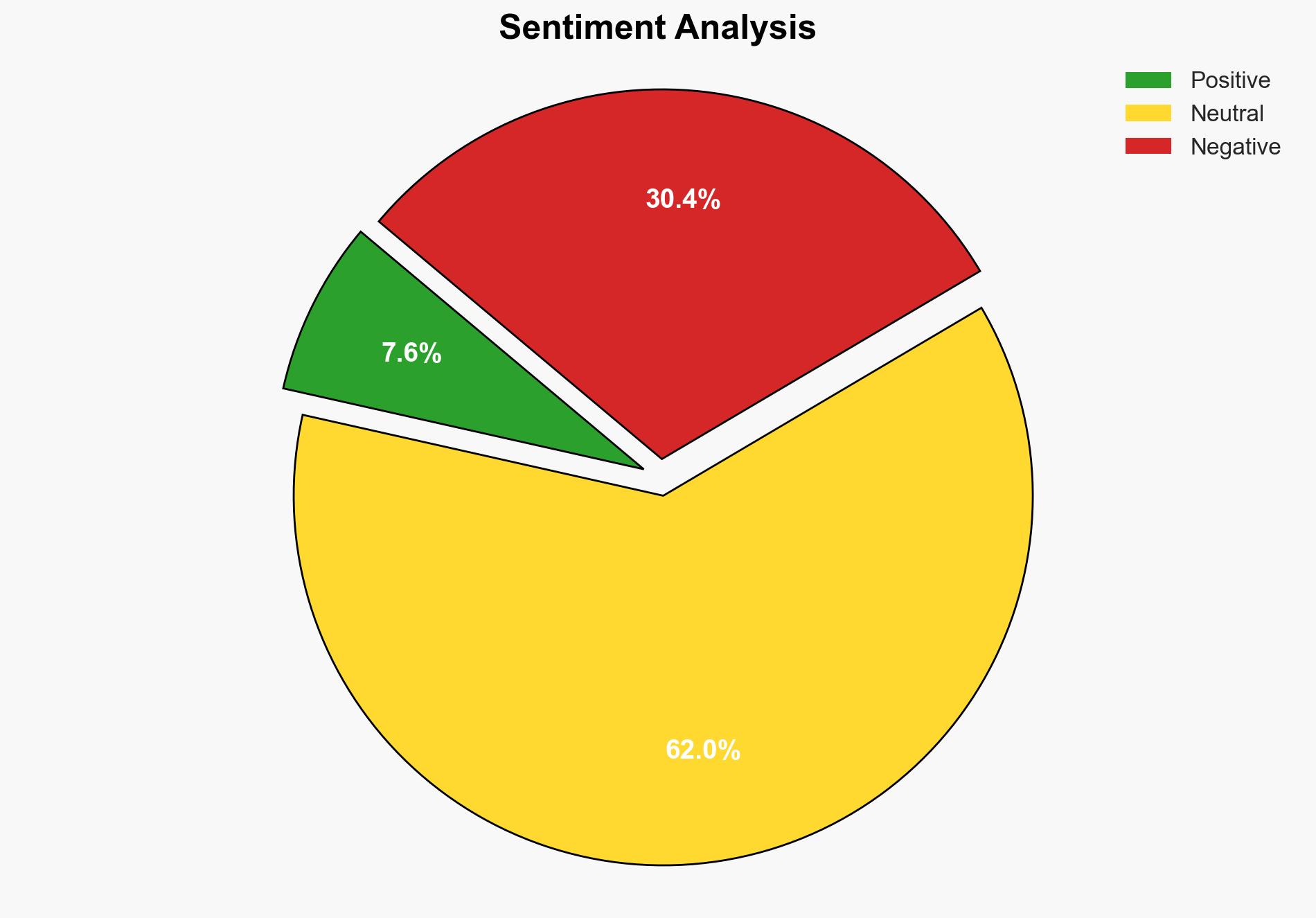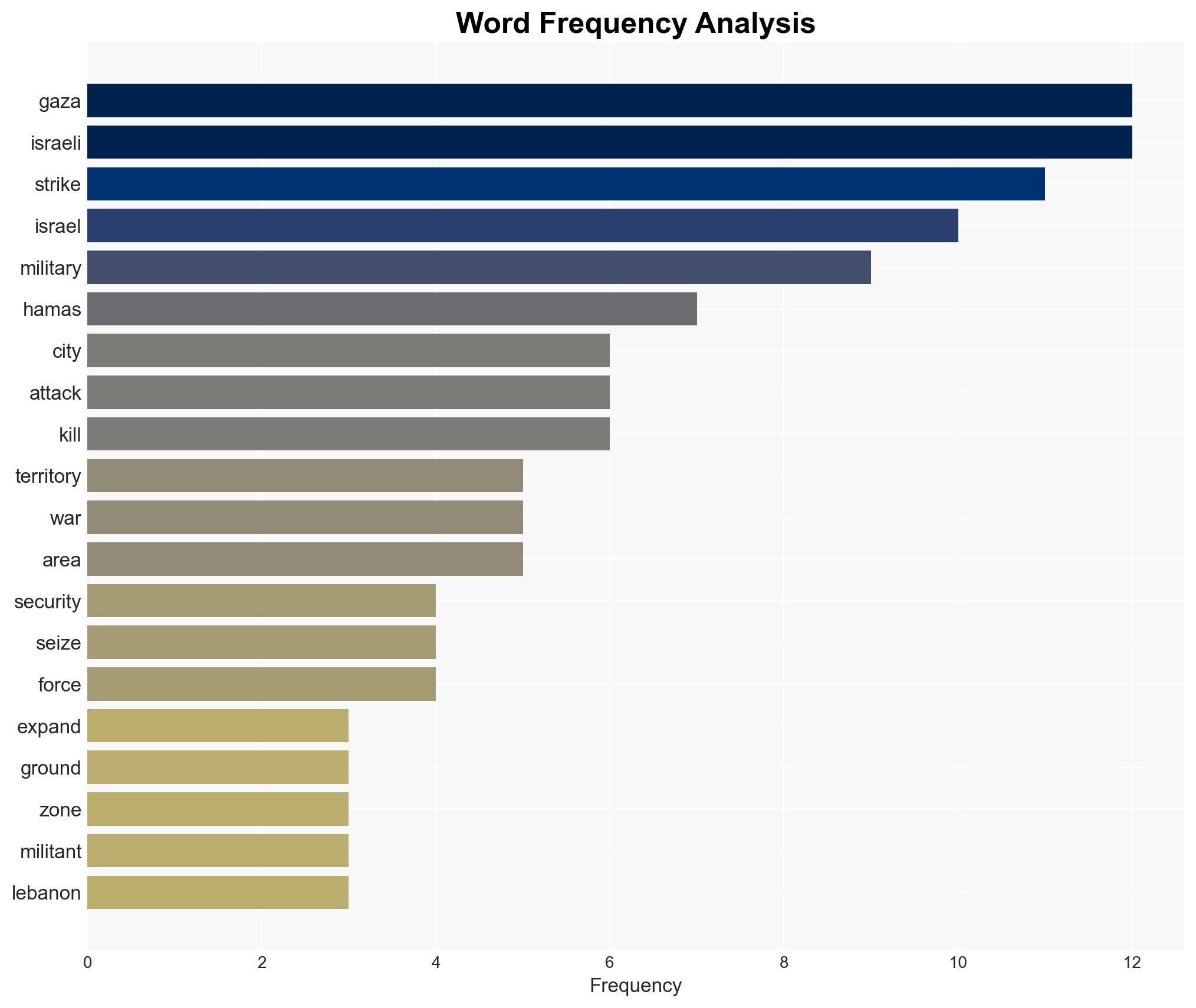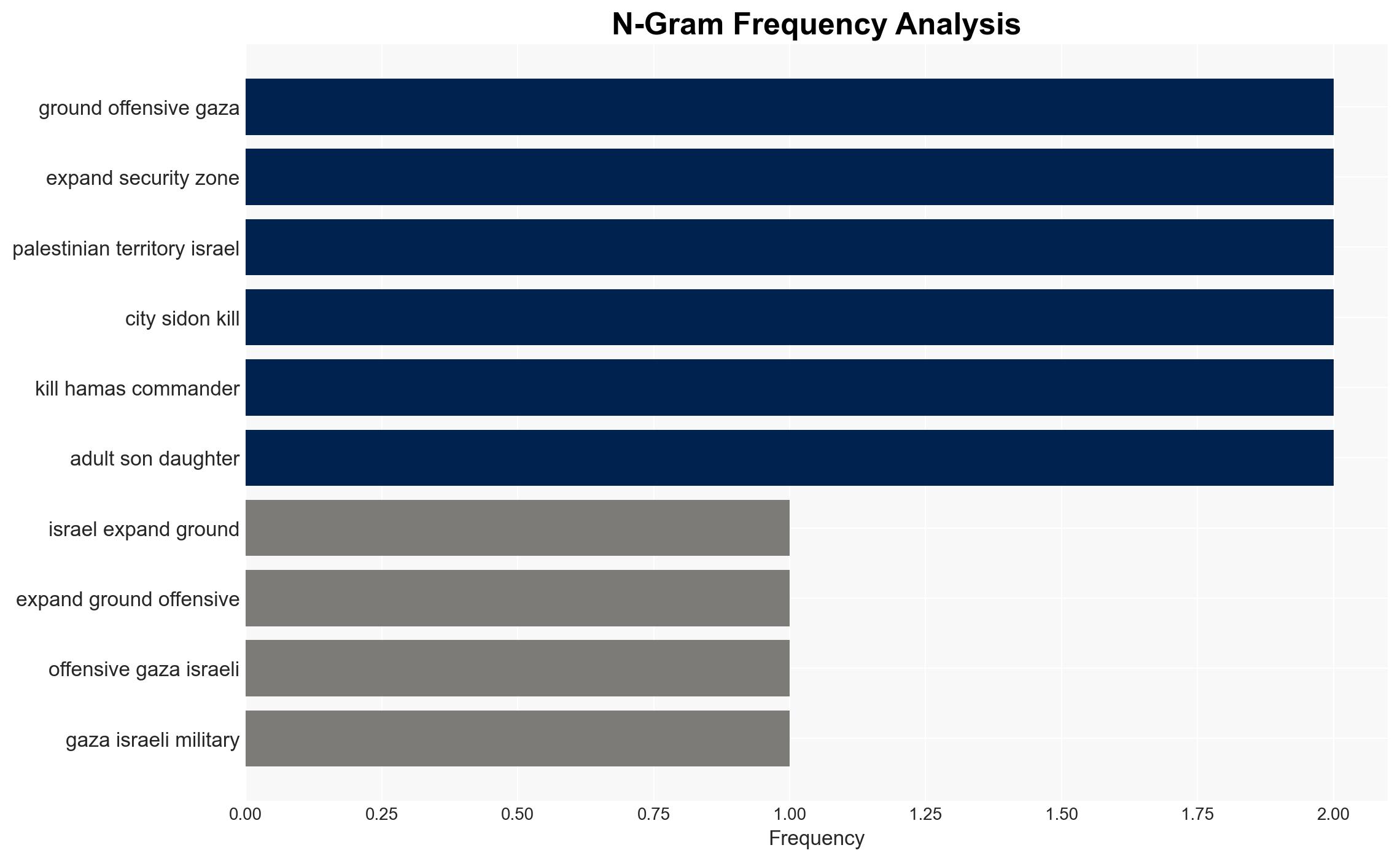Israel Expands Ground Offensive In Gaza – International Business Times
Published on: 2025-04-04
Intelligence Report: Israel Expands Ground Offensive In Gaza – International Business Times
1. BLUF (Bottom Line Up Front)
Israel has expanded its ground offensive in Gaza, aiming to establish a security zone and pressure Hamas to release hostages. This escalation follows a short-lived truce and involves simultaneous military actions in Lebanon and Syria. The situation poses significant risks to regional stability and international relations.
2. Detailed Analysis
The following structured analytic techniques have been applied for this analysis:
General Analysis
Israel’s military operations in Gaza are part of a broader strategy to dismantle Hamas’ infrastructure and secure the release of hostages. The offensive in Gaza City and the Shejaiya area aims to expand Israel’s security zone. Concurrently, Israel has conducted strikes in Lebanon and Syria, targeting key figures and infrastructure linked to Hamas and other militant groups.
The escalation follows an attack by Hamas in October, which has led to ongoing hostilities. The Israeli military’s actions in Lebanon, particularly the strike in Sidon, have drawn condemnation from Lebanese authorities and could potentially escalate tensions with Hezbollah.
3. Implications and Strategic Risks
The expansion of Israel’s ground offensive in Gaza increases the risk of a broader regional conflict, particularly with Hezbollah in Lebanon and potential Syrian involvement. The humanitarian impact in Gaza is severe, with civilian casualties reported, including children. This situation could lead to international condemnation and affect diplomatic relations.
Economically, the conflict may disrupt regional trade and affect global markets, especially if tensions escalate further. The ongoing instability could also impact energy supplies and prices, given the region’s strategic importance.
4. Recommendations and Outlook
Recommendations:
- Encourage diplomatic engagement to de-escalate tensions and negotiate a sustainable ceasefire.
- Enhance intelligence-sharing among allies to monitor and respond to regional threats effectively.
- Support humanitarian efforts in Gaza to mitigate the impact on civilians and prevent further escalation.
Outlook:
Best-case scenario: Diplomatic efforts lead to a ceasefire, reducing hostilities and allowing for humanitarian aid in Gaza.
Worst-case scenario: The conflict escalates into a broader regional war involving multiple state and non-state actors.
Most likely scenario: Continued skirmishes and military operations with intermittent diplomatic efforts to stabilize the situation.
5. Key Individuals and Entities
The report mentions significant individuals and organizations, including Benjamin Netanyahu, Israel Katz, Mahmud Bassal, Hassan Farhat, and Nawaf Salam. These individuals are central to the ongoing developments and their actions may influence the course of the conflict.





